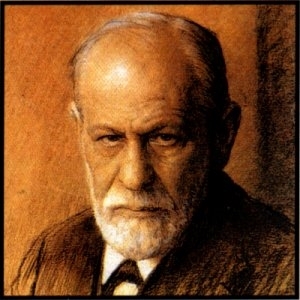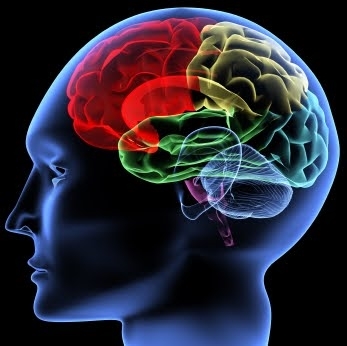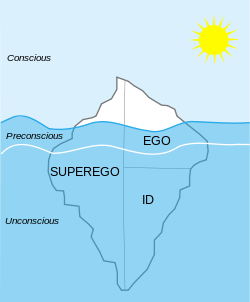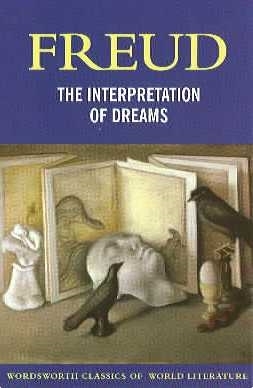 |
| Sigmund Freud's Portrait ( (google.com)Max Halberstadt))) |
"A successful life is one that is lived through understanding and pursuing one's own path, not chasing after dreams of others." This quote by Chin-Ning Chu strongly supports the motives of a psychoanalytic genius Sigmund Freud. Sigmund Freud was born on May 6, 1856 in Freiberg Moravia. At the age of 4, his family moved to Vienna where he spent the majority of his lifetime. At a young age his family recognized his genius and soon became the family favorite. In his teen years he was interested in a wide-range of scientific topics and decided to receive his doctorate degree. He began studying neurology and later psychoanalysis which he based off sexual drives and interpretation of dreams. Freud passed his final examinations and got accepted into the University of Vienna. His years of study at the University of Vienna helped him in his psychological research and then to publish his books on psychoanalysis. Throughout his psychoanalytic career, he made many discoveries, published several books, and inspired many people. Freud's confidence and passion for his work leads to new discoveries, opens up people's eyes, and introduces a new view of the world to many people.
 |
| Human Mind (google.com (Unknown)) |
Through his display of passion, Freud incessantly gathered knowledge and conducted experiments to help many scientists better understand the way the human mind works and how it manipulates us in various ways. Freud always stayed open-minded in his career and explored a broad variety of subjects in his life: "The scope of Freud's interests, and his professional training was extremely broad. He always considered himself first and foremost a scientist, endeavoring to extend the compass of human knowledge, and to this end (rather than to the practice of medicine) he enrolled at the medical school at the University of Vienna in 1873" ("Internet Encyclopedia of Philosophy"). Freud was passionate about anthropology from a young age, and later pursued his interest to become a psychoanalyst. As a psychoanalyst, Freud explored the depths of the human mind to expand the knowledge of modern scientists and perhaps, men and women associated in a medical field. Even though Freud loved his career as a psychoanalyst, he faced certain troubles concerning racism in his life that limited his choice of studies. "Although primarily interested in physiological research, Freud was forced to enter into clinical practice due to the difficulty of obtaining a university appointment--aggravated, in his case, by anti-Semitic attitudes and policies. After additional independent research and clinical work at the General Hospital of Vienna, Freud entered private practice, specializing in the treatment of patients with neurological and hysterical disorders" (World of Health). Although he never really spent much time learning about physiology, he studied psychology and gradually fell in love with it. Freud's knowledge in the field of neurology later helped him in therapy and experiments. His interest toward scientific studies truly displays his passion towards his work.
 |
| Iceberg showing the three states of consciousness (Google.com (Unknown)) |
Aside from passion, Sigmund Freud demonstrates confidence in his work by showing how he carried on with his experiments in search of new explanations for human behavior, even though many believed his work to contain false interpretations. Freud spent a great amount of his time working with a fellow scientist named Breuer. "Shortly thereafter, however, Breuer found that he could not agree with what he regarded as the excessive emphasis upon which Freud placed the sexual origins and content of neuroses. The two parted company, with Freud continuing to work alone to develop and refine the theory and practice of psychoanalysis" ("Internet Encyclopedia of Philosophy"). Freud grasped every ounce of knowledge that crossed his path and researched it despite what other fellow scientists or researchers might have told him. Many of his ideas have always been controversial despite the evidence he supported it with. His magnificent discoveries soon began to attract attention all around the world. "While recognition from the scientific community and the general public was slow in coming, by the early 1900s Freud had attracted a circle of followers, including Carl Jung, Alfred Adler, and Otto Rank (1884-1939), who held weekly discussion meetings at his home and later became known as the Vienna Psychological Society" (World of Health). Freud's self-assurance in his work led to many followers who later based their own theories on Freud's. This circle of followers together formed new interesting theories, but eventually they branched off to work on their own experiments. Freud's confidence in his research led to many satisfying results that later made him famous.
 |
| Freud's Book |
Freud's passion and confidence in his work influenced scientists and researchers and ultimately earned him a successful lifestyle. This man's philanthropist nature influenced the whole world, making psychology one of the most practiced and researched science all over the world. Sigmund Freud is an inspiration to me because through confidence and passion he gained experience in many fields of research that set up a stepping stone to his later discoveries. He also seems fit to deserve the title "hero," because Freud's reasoning and observations seem logical and highly informative of how the human mind works. According to Gale World of Health, "Many of the concepts and theories Freud introduced--such as the role of the unconscious, the effect of childhood experiences on adult behavior, and the operation of defense mechanisms--continue to be a source of both controversy and inspiration." These concepts are both inspirational and controversial because many believe that this subject can be classified as "supernatural", and choose not to believe in it. Although others find it an inspiration, because it defines the troubles and lust towards something one might be experiencing. Sigmund Freud truly represents a modern hero and his character traits will remain cherished for many centuries.
Works Cited
"Sigmund Freud." Encyclopedia of World Biography. Detroit: Gale, 1998.
Gale Biography In Context. Web. 21 Mar. 2012.
"Sigmund Freud." Scientists: Their Lives and Works. Gale, 2006.
Gale Student Resources In Context. Web. 28 Mar. 2012.
"Sigmund Freud." World of Health. Gale, 2006.
Gale Student Resources In Context. Web. 29 Mar. 2012.
"The Escape of Sigmund Freud." Kirkus Reviews 15 Mar. 2012.
Academic OneFile. Web. 28 Mar. 2012.
Thornton, Stephen P. "Internet Encyclopedia of Philosophy." Freud, Sigmund. Internet Encyclopedia of Philosophy, 16 Apr. 2001. Web. 29 Mar. 2012.
Page created on 4/24/2012 12:00:00 AM
Last edited 4/24/2012 12:00:00 AM
